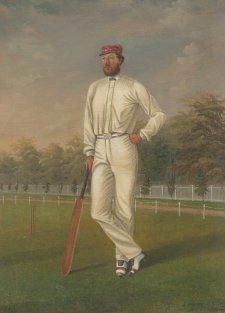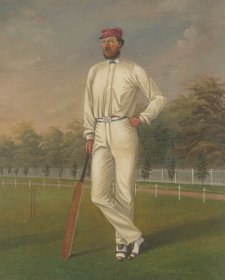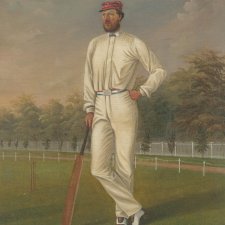- About us
- Support the Gallery
- Venue hire
- Publications
- Research library
- Organisation chart
- Employment
- Contact us
- Make a booking
- Onsite programs
- Online programs
- School visit information
- Learning resources
- Little Darlings
- Professional learning
Horatio Spencer Howe Wills (1811–1861), pastoralist, politician and newspaper proprietor, was born in Sydney, several months after the death of his father, Edward Spencer Wills, a merchant and shipowner who'd arrived in New South Wales under a life sentence for highway robbery in 1799. When Horatio was twelve months old, his mother, Sarah, married George Howe, the publisher of the Sydney Gazette. At age twelve, Horatio was apprenticed to his step-brother, Robert, who'd inherited the Gazette on George Howe's death in 1821. Over the course of his apprenticeship, Wills absconded at least three times, at one point taking his stepbrother master to court on allegations of ill treatment. Despite the bitterness of his association with Howe, Wills took over the running of the Gazette following Howe's death in January 1829; later, in 1832, he established his own newspaper, the short-lived Currency Lad. By 1834, now married, out of the newspaper trade, and able to claim his inheritance, Wills had gone into farming, acquiring his first property, Burra Burra (south of present-day Queanbeyan) in the early 1830s. In December 1839, Wills left Burra Burra for the Port Phillip district, ultimately selecting a 120,000 acre run near Ararat, which he named Lexington. After selling Lexington in 1852, Wills and his substantial family (the first six of his nine children were born between 1834 and 1852) moved to Point Henry, near Geelong. Wills was elected to the Victorian Legislative Council in 1855 and the following year joined the first Legislative Assembly, serving as the Member for South Grant until 1859. Having undertaken two journeys to Queensland in search of further farming opportunities, Wills leased Cullin-la-ringo, near Emerald, in 1860. Overlanding from Brisbane with a party of some 25 stockmen, servants and their families (and 10,500 sheep), Wills reached Cullin-la-ringo after an eight-month journey in early October 1861 and immediately set about establishing a station. Less than a fortnight later, he and eighteen others were murdered when a group of Aboriginal people mounted a violent raid on the property. The new arrivals' transactions with the locals had hitherto been peaceful, and it is now thought that Wills and his party were the victims of an attack meted out in revenge for atrocities committed by a neighbouring squatter against the local Gayiri people. Reprisal for the Cullin-la-ringo killings was swift, indiscriminate and brutal, with some historians estimating that 370 Aboriginal people were killed as a result of revenge attacks carried out over the next several months.
Wills' sons retained leases on Cullin-la-ringo until 1877; the property was sold for grain production in the late 1940s, and was broken up altogether when the venture subsequently failed.
Gift of T S Wills Cooke 2014. Donated through the Australian Government's Cultural Gifts Program.
Horatio S. Wills (age 44 in 1855)
Terry Wills Cooke (7 portraits)



On one level The Companion talks about the most famous and frontline Australians, but on another it tells us about ourselves.



The tragic tale of Tom Wills, the ‘inventor’ of Australian Rules Football.



Visit us, learn with us, support us or work with us! Here’s a range of information about planning your visit, our history and more!